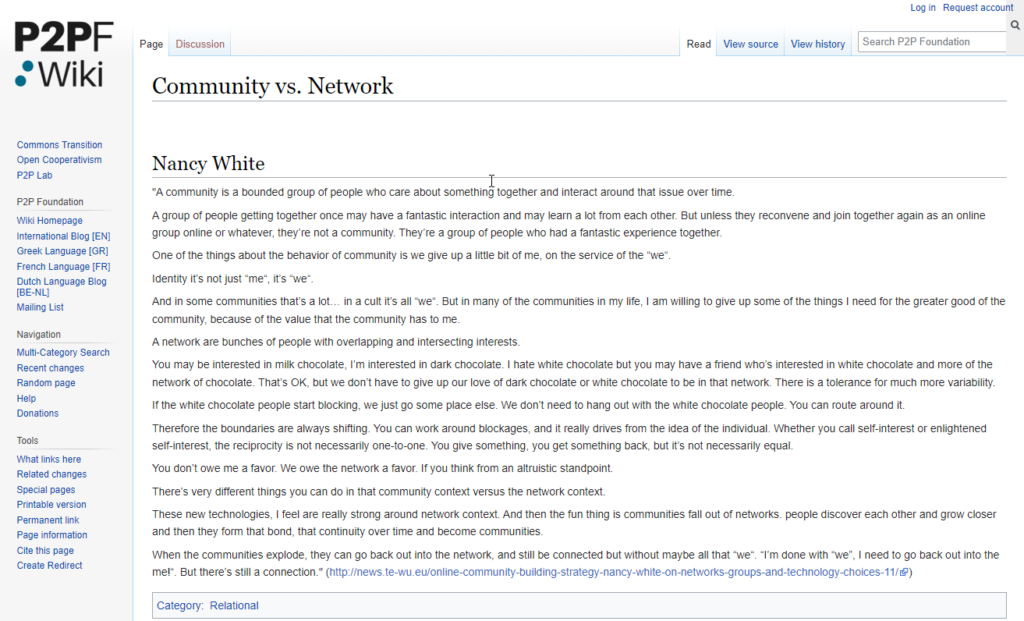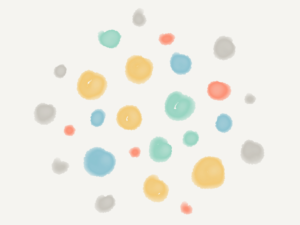From the Drafts: something I wrote about community vs network a zillion dog years ago that showed up on the Peer to Peer Foundation wiki. Still works, but there needs to be an update. How would you describe the differences?

“A community is a bounded group of people who care about something together and interact around that issue over time.
A group of people getting together once may have a fantastic interaction and may learn a lot from each other. But unless they reconvene and join together again as an online group online or whatever, they’re not a community. They’re a group of people who had a fantastic experience together.
One of the things about the behavior of community is we give up a little bit of me, on the service of the “we“.
Identity it’s not just “me“, it’s “we“.
And in some communities that’s a lot… in a cult it’s all “we“. But in many of the communities in my life, I am willing to give up some of the things I need for the greater good of the community, because of the value that the community has to me.
A network are bunches of people with overlapping and intersecting interests.
You may be interested in milk chocolate, I’m interested in dark chocolate. I hate white chocolate but you may have a friend who’s interested in white chocolate and more of the network of chocolate. That’s OK, but we don’t have to give up our love of dark chocolate or white chocolate to be in that network. There is a tolerance for much more variability.
If the white chocolate people start blocking, we just go some place else. We don’t need to hang out with the white chocolate people. You can route around it.
Therefore the boundaries are always shifting. You can work around blockages, and it really drives from the idea of the individual. Whether you call self-interest or enlightened self-interest, the reciprocity is not necessarily one-to-one. You give something, you get something back, but it’s not necessarily equal.
You don’t owe me a favor. We owe the network a favor. If you think from an altruistic standpoint.
There’s very different things you can do in that community context versus the network context.
These new technologies, I feel are really strong around network context. And then the fun thing is communities fall out of networks. people discover each other and grow closer and then they form that bond, that continuity over time and become communities.
When the communities explode, they can go back out into the network, and still be connected but without maybe all that “we“. “I’m done with “we”, I need to go back out into the me!“. But there’s still a connection.”


 From the draft posts I’m mining, I reread a fantastic 2008 post by Konrad Glogowski on his blog,
From the draft posts I’m mining, I reread a fantastic 2008 post by Konrad Glogowski on his blog, 